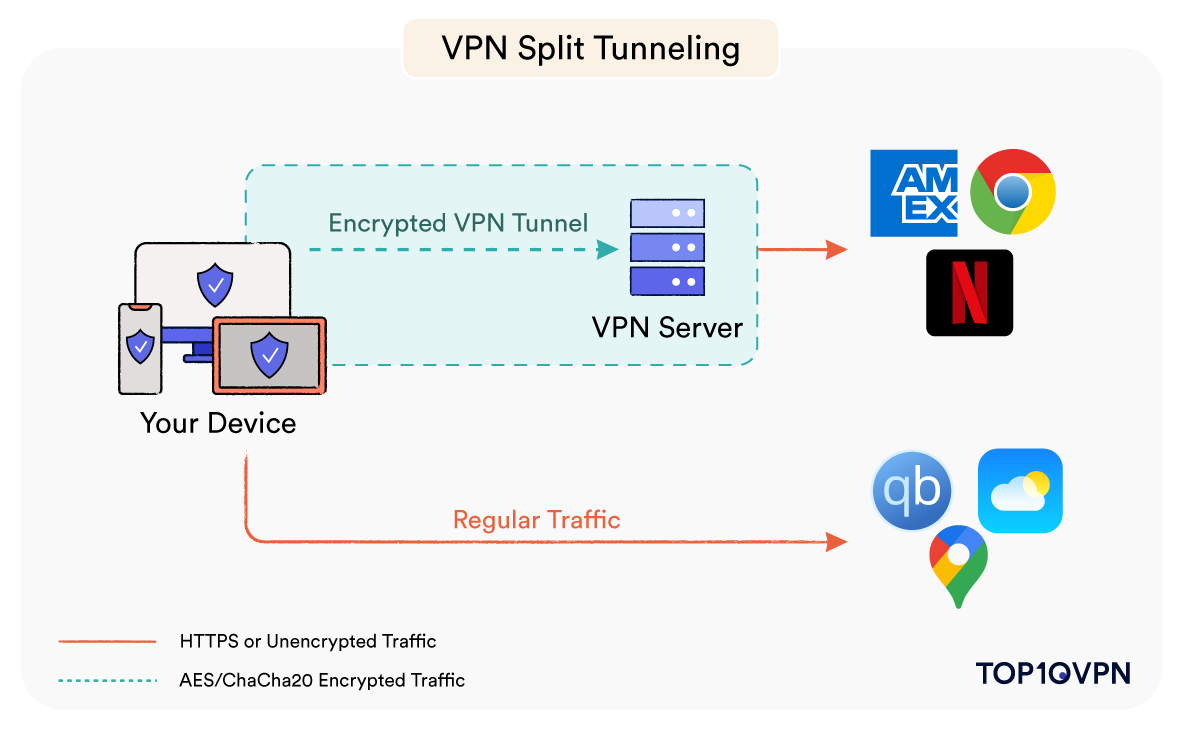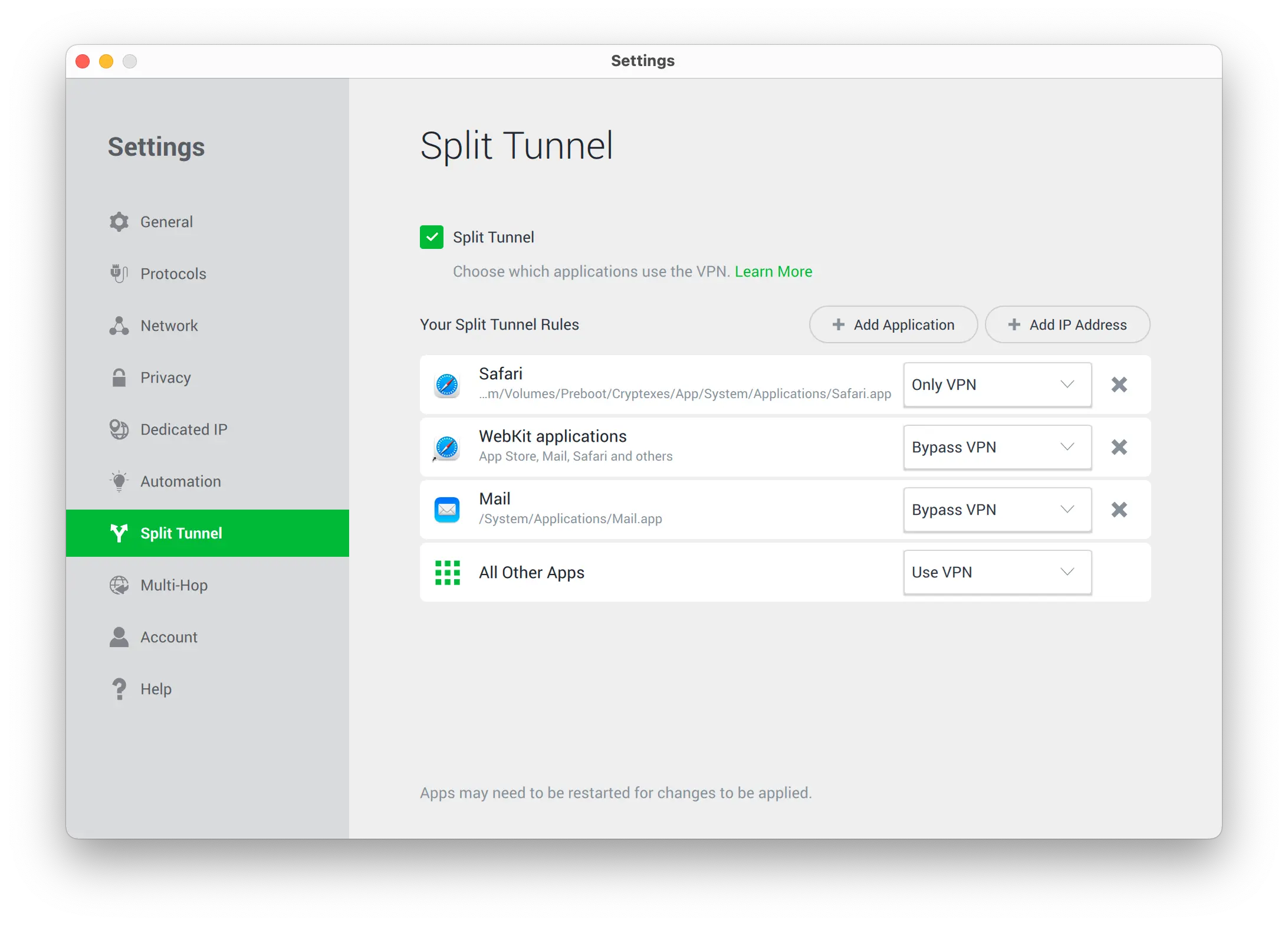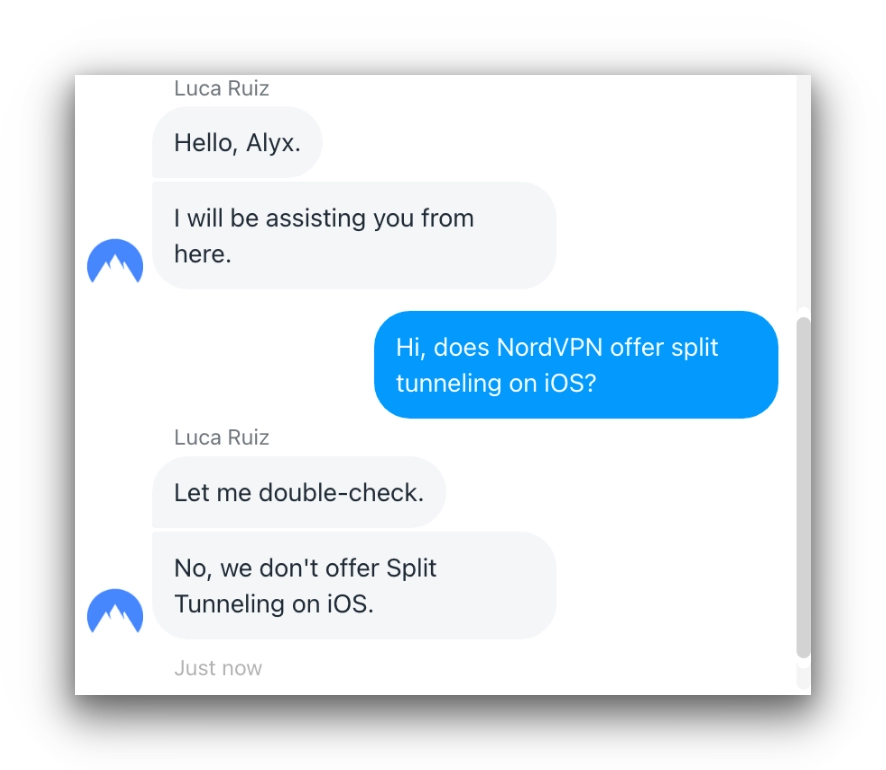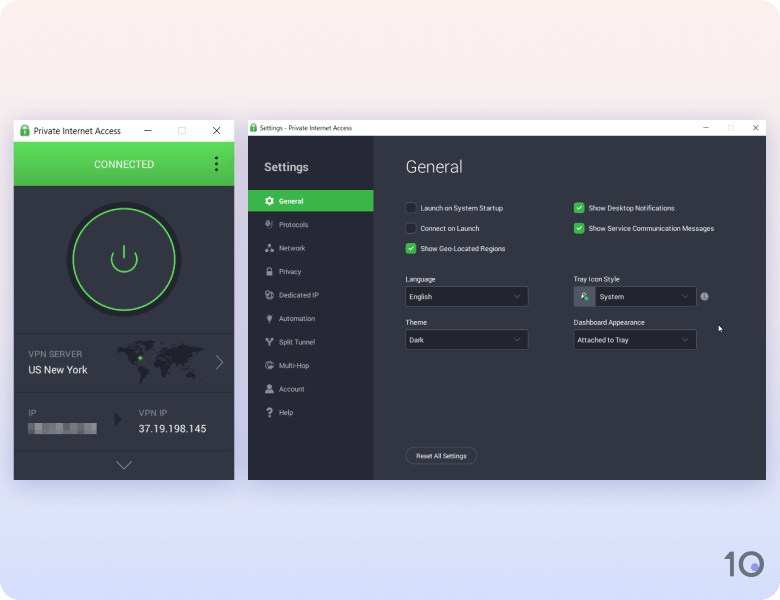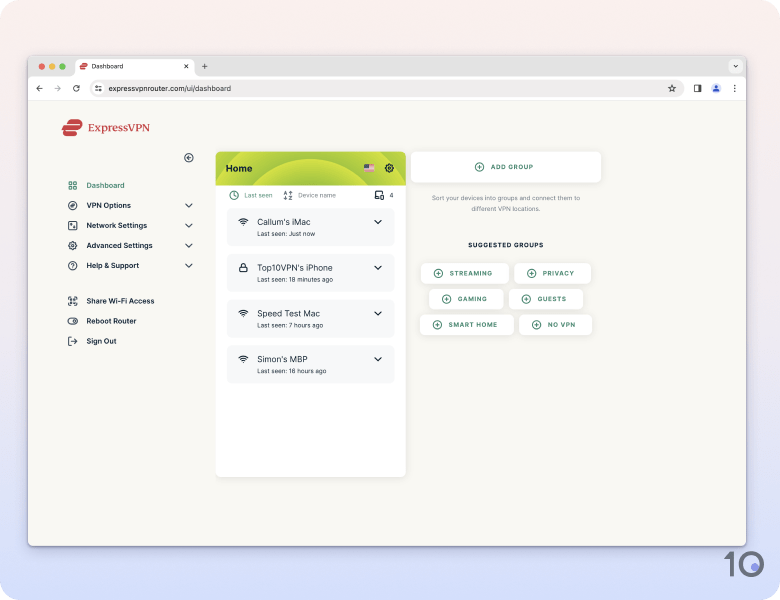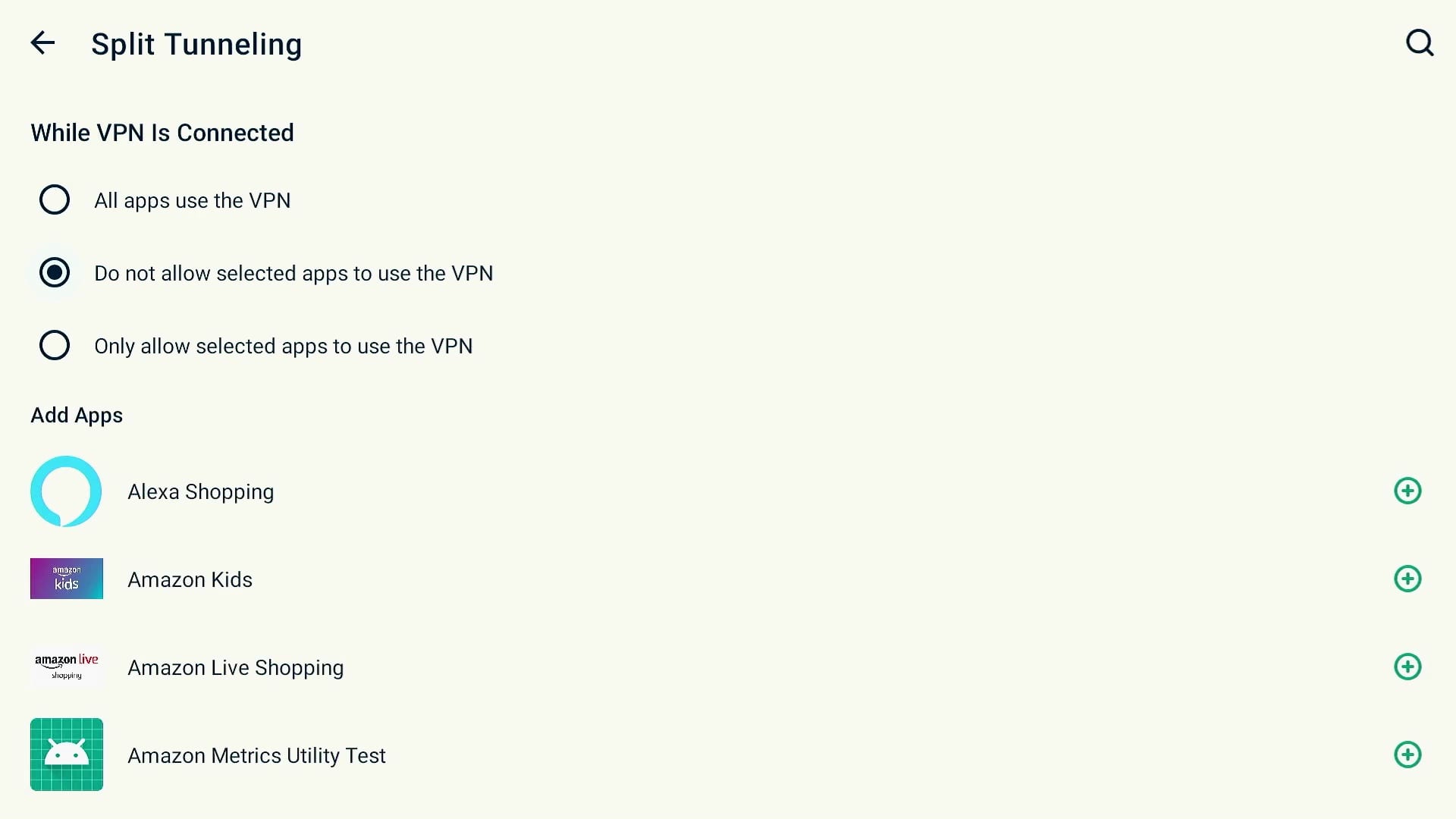In the following section, we’ll detail the main benefits of using a VPN’s split tunneling feature:
1. You Can Keep Your VPN Switched On
Some applications and services simply won’t work with your VPN switched on. They might require your home IP address for authentication, or they might block traffic from known VPN servers altogether.
Spotify, Ticketmaster, and Steam block all forms of known VPN traffic. Wikipedia blocks VPN users from editing pages, and online banking systems may require you to carry out additional authentication measures if you use a VPN.
If you keep your VPN switched on permanently for full protection, you might find yourself turning it off from time to time when you need to use one of these apps or services. It’s a nuisance, and it risks you leaking data if you forget the VPN is off.
Split tunneling stops you from having to do that by enabling you to specify which apps go through the VPN tunnel.
2. Speed Up Your Connection
Using a VPN service is slower than connecting directly to the web. The extra hop to the VPN server takes some time, and the encryption that the VPN performs also causes a delay.
Among the top five fastest VPNs, you’ll typically see a connection slowdown of between 1% and 10% when connecting from the US (New York) to the UK (London), or an equivalent distance.
By using split tunneling, you can speed up the performance of apps and websites that do not need to be routed through the VPN.
3. Avoid Data Limits & Reduce Mobile Bandwidth Consumption
While most premium VPNs offer unlimited data usage, free VPNs often apply a monthly limit to the amount of data you can route through their network.
Some free VPNs with data limits such as Windscribe Free and Hide.me support split tunneling, which means you can stretch your VPN data allowance as far as possible.
If you have a cellular plan with a fixed data cap, you’ll also reach your limit faster with a VPN. In fact, you’ll consume between 4% and 20% more data with a VPN compared to browsing the web without one.
Using split tunneling, you can choose which applications go through the VPN tunnel, so you can avoid using more cellular data than you need to.
4. Protect Your Torrenting Traffic
The use of VPN services is becoming more common in the online gaming community. Many gamers are concerned about exposing their real location, while others are looking to avoid distributed denial of service (DDoS) attacks on their network.
Using a VPN service hides your IP address, so you can’t be identified or targeted. However, gaming is incredibly data-intensive. In this case, split tunneling allows you to protect your gaming activity while routing the rest of your traffic elsewhere.
5. Access Local Network Resources
You may have heard that directing your device traffic through a VPN can cause difficulties when connecting to devices on the local area network (LAN), such as a wireless printer. Some websites recommend using split tunneling as a solution to this problem.
We’ve tested this issue with a few popular VPN services including ExpressVPN, Proton VPN, and PrivateVPN, and we recorded mixed results:
- Proton VPN and PrivateVPN both worked to print wirelessly without activating split tunneling.
- ExpressVPN worked to print without split tunneling when the setting labelled “allow access to devices on the local network” was enabled. However, printing did not work when this option was disabled. On mobile, it worked by default, no special settings needed.
These results suggest that VPNs can have an impact on your ability to access LAN resources, but it’s not as much of an issue as some websites make out. If you’re using a top-tier VPN, it’s likely the VPN will provide an option to access LAN devices, or it might do so by default.
If you’re using a VPN that doesn’t work with devices on your local network, split tunneling is a viable solution.
6. Access Geo-Restricted Content
It’s common to use a VPN to bypass geographic content restrictions on streaming services like Netflix. However, it’s possible you’ll still need to access local search results or content that is restricted to your home region.
Split tunneling allows you to choose which applications use your home IP address and which use the IP address of a VPN server.

